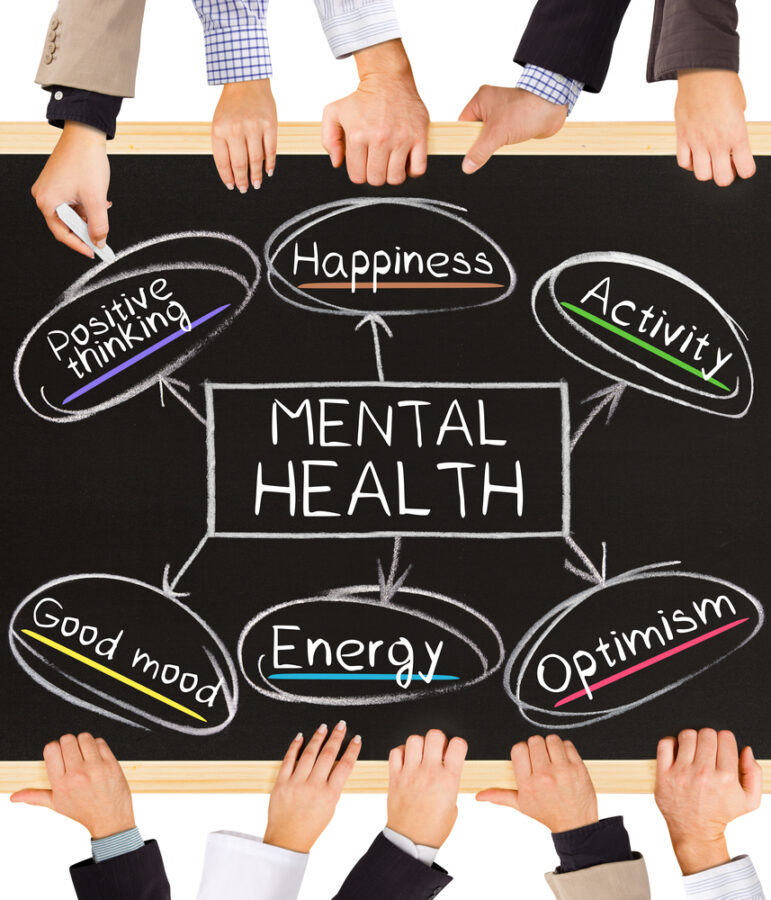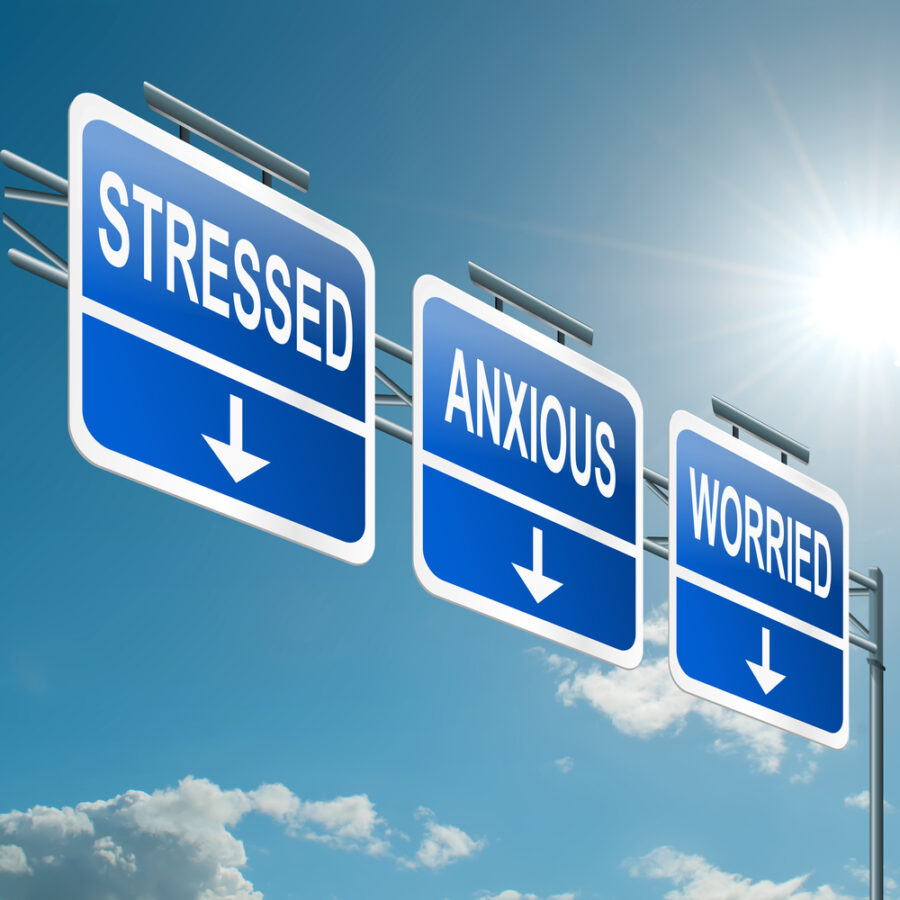As an over-the-road or OTR driver, you’re used to being alone on the road for weeks at a time. Even the most social of people can feel isolated. It’s important to find ways to stay connected to friends and family while you’re on the road. Staying connected helps with feelings of loneliness and overall mental health!

Truckers’ mental health struggles
Over-the-road (OTR) driving is a tough job and we need to acknowledge the mental health struggles many of you may face. Being away from home and loved ones for extended periods of time while driving down the highway can take a toll on you.
The trucking industry can be an isolating business and can lead to feelings of loneliness and homesickness and the constant stress, tight schedules and traffic congestion can increase anxiety and depression risks.
Also, the sedentary nature of truck driving can impact your physical health which can further impact your mental state. We need to address these challenges to keep your overall well-being and resilience.

Chronic loneliness
Chronic loneliness is an ongoing state of deep isolation and social disconnection that persists over time. Unlike temporary feelings of solitude, chronic loneliness is a persistent and pervasive emotional state that affects overall well-being and mental health.
Chronic loneliness can be tough to overcome as it can reinforce negative thought patterns and prevent you from forming and maintaining healthy relationships.
Overcoming chronic loneliness requires a multi-faceted approach including self-awareness, seeking social support, and professional help when needed to build emotional resilience and a sense of belonging.
Depression
Depression also known as major depressive disorder is a serious mental health condition that affects a person’s emotions, thoughts, and behavior. It’s more than just the normal ups and downs and can go on for weeks, months, or even years if left untreated.
Other symptoms include changes in appetite, sleep disturbances, fatigue, and difficulty concentrating. If you’re experiencing depression you need to seek professional help as it can bring significant improvement in mental well-being and overall quality of life.
Feelings of Isolation
Feelings of isolation are a deep sense of emotional disconnection and social detachment from others, often resulting in a perceived lack of meaningful connections and support. When you’re feeling isolated you feel like you’re on the outside of social interactions, and can’t relate to others or be understood.
This sense of separation can come from many factors such as physical distance from loved ones, lack of close relationships, social anxiety, or feeling like you don’t fit in with a certain group.
Over time isolation can negatively impact your mental and physical health as social interactions and meaningful connections are key to overall well-being.
To overcome feelings of isolation is to reach out to others, seek professional help, and do activities that will give you a sense of belonging so you can rebuild your social network and sense of purpose in life.

How does feeling lonely or isolated affect your health?
Knowing the challenges you face on the road and the long hours away from your support network you need to acknowledge how loneliness and isolation can affect your health.
Your demanding job can make you feel detached from loved ones and if not addressed can harm your physical and mental health.
Chronic loneliness is linked to increased stress, anxiety, and depression. The added stress from your job and emotional isolation can increase the risk of cardiovascular problems, weakened immune systems, and disrupted sleep patterns.
As safety on the road is a top priority you need to acknowledge that a lack of social interaction can also affect your cognitive abilities and decision-making skills and increase the risk of accidents.

How do you stay connected?
Online Resources
There are many online resources available to you on the road especially when you find parking areas with wifi. One of the most popular and versatile platforms for virtual connections is Zoom.
Whether it’s a weekly catch-up call, virtual family dinners, or special occasions like birthdays and holidays, Zoom brings everyone together in a virtual space. You can share stories, see each other’s faces maintain that human connection and build strong relationships even if you’re on the road.
Use video chats during your break or downtime and make it a habit to check in with your family. They will appreciate you keeping in touch and it will definitely strengthen your relationship.
Being part of an online community can also enrich your connections on the road. Look for forums or social media groups where truck drivers and their families gather to share experiences and support each other. Joining these communities can give you valuable insights, tips, and a sense of belonging.
You can share stories, ask for advice, and offer encouragement to fellow drivers’ families knowing you’re not alone in this journey. Building relationships with others who understand the OTR lifestyle can be a comfort and a sense of community and extend your support network beyond your immediate family.

Remote Activities
You can use technology to bridge the gap and connect with your families remotely through various online activities. One way to bond with your loved ones is to play online games together. There are many multiplayer games available that allow you and other drivers, friends, or family members to team up and compete virtually regardless of your location.
By having regular gaming sessions you can have fun, share laughter, and build memories with your family even if you’re miles apart. Whether it’s solving puzzles together, virtual battles or just casual games online gaming is an interactive and fun way to stay connected.
Another option for truck drivers is to connect with their families through movie nights using watch parties. Several online platforms have features that allow multiple people to watch a movie simultaneously while chatting or video calling in real-time. You can plan movie nights with your family and choose a movie that everyone can watch together.
Movie watch parties are a cozy and intimate way for you to relax and bond with your loved ones and prove that distance is no barrier to meaningful connections. So use these remote ways to connect with your family and make the most of your time together even if you’re on the road.

Scheduled Time
One way to stay connected is by scheduling phone calls during driving hours or break times. During the long hours on the road, you can set specific times to call loved ones. By planning specific times you can make sure they’re available to answer the phone too.
With hands-free and Bluetooth devices, you can call them anytime on the road and you’ll feel more connected when you know they can answer. Calling during break times can also be a good time to do a video call. This way you can see their faces and have a more personal connection. This can make you feel close to them even if you’re miles away.
Scheduling can also be very effective when preparing for home time. Planning activities to do when you get home can help with loneliness on the road. Knowing you have something to look forward to can add excitement to your daily life.
This could be family gatherings, vacations together or just quality time at home. By setting aside specific time for these activities both you and your loved ones can look forward to these moments and make them more special. This proactive approach can help you have a better balance between your professional and personal life despite the challenges on the road.

The ShipEX Difference
Many drivers avoid home time because of the stress of lost income and during home time they do take they can’t fully relax. This can deepen feelings of isolation or depression for drivers who feel they can never go home. Reconnecting with loved ones during home time is crucial for every truck driver on the road. When you’re stressed on the road taking a break with people you love can make all the difference.
That’s why we have a paid home time program. All ShipEX OTR drivers get paid home time so they don’t have to worry about lost pay during the days they’re home with their families. They earn the same amount no matter what. This way ShipEX drivers can take the time they need without worrying about money. Instead, they can relax mentally and take care of themselves before getting back on the road feeling refreshed.
Disclaimer: The information contained in this post is general in nature and should not be considered complete or used in place of a visit, call, consultation or advice of your physician or other mental health-care provider. Should you have any mental health-care-related questions or concerns, please call or see your physician or other health-care provider promptly.


